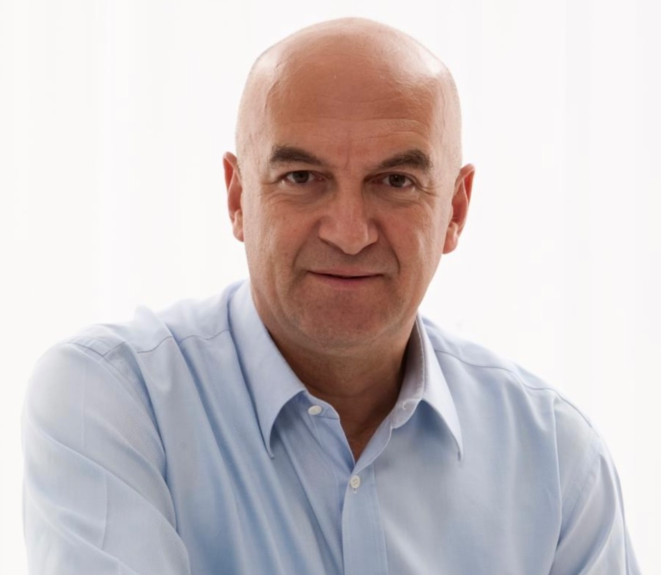Turkey’s so-called “Peace Initiative,” officially called as “Terror-Free Turkey” project, is accelerating—and fast. Yet behind the confident messaging lies a far more turbulent picture shaped by regional realignments, domestic political fragilities, and, overall, distorted optics.
Three developments define this moment.
First, the uproar caused by the ad-hoc parliamentary commission’s plan to meet with Abdullah Öcalan on İmralı Island (where he is serving a life sentence)—a move pushed insistently by MHP leader Devlet Bahçeli.
Second, the CHP’s dilemma—under judicial pressure and political constraint—over whether to join this delegation.
And third, the “surprise appearance” of General Mazlum Abdi, commander of the mainly Kurdish Syrian Democratic Forces (SDF), at the Middle East Peace and Security Forum (MEPS 2025) in Duhok, alongside Ilham Ahmed, co-president of the Executive Council of North and East Syria. The messages they delivered with Iraqi Kurdish leaders painted a regional picture that raises new challenges for Ankara, blurring its endgame.
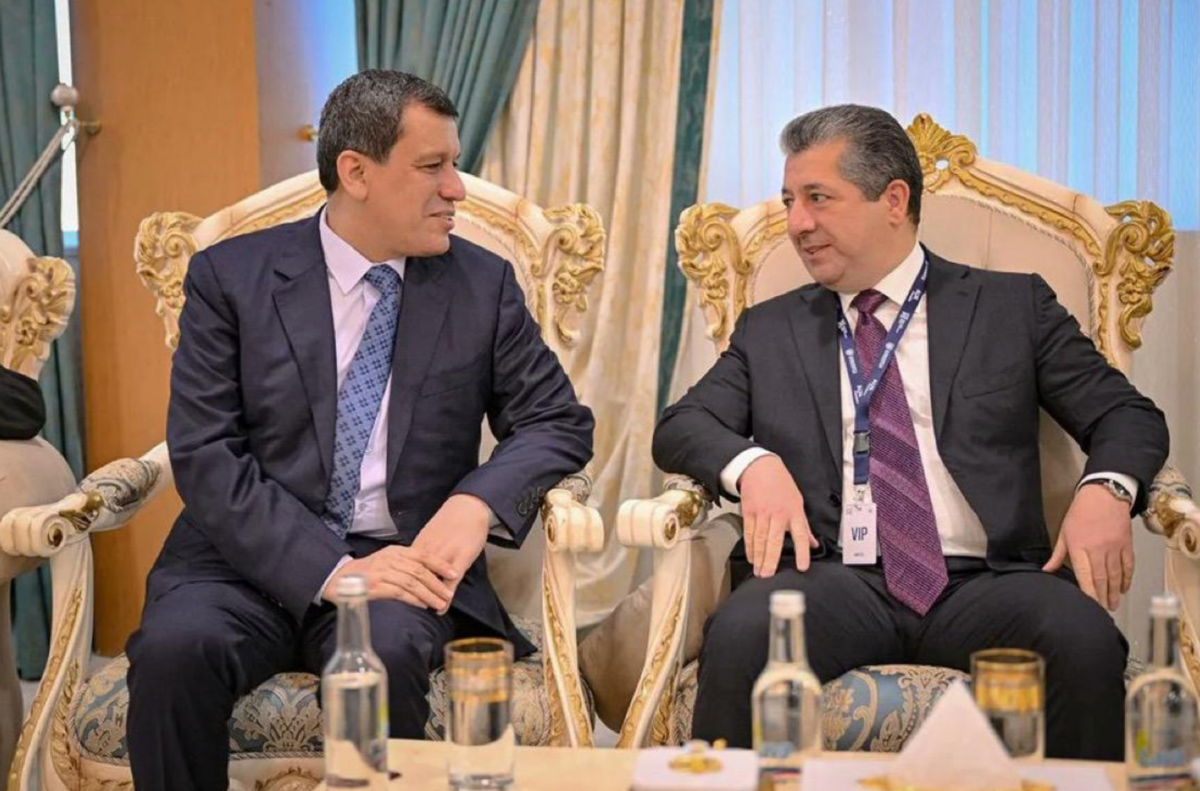
Agrandissement : Illustration 1

From its launch on 1 October 2024, Bahçeli’s initiative on “Terror-Free Turkey”was never truly separable from the region’s seismic tensions. The government wrapped the move in an appealing label—“peace”—masking a hard political reality: since 2016, there has actually been no “warlike situation” between the Turkish Army and the PKK, except for a few skirmishes and isolated, small-scale acts of terror.
Governed since the 2017 referendum under a rigid super-presidential and security-state model, based on the unity of powers, what seems to be unfolding is not a peace process as a tool for granting collective rights to the Kurdish minority, but instead as a tool for consolidating power, embracing the entire political spectrum for what Erdoğan and Bahçeli call the “Domestic Front” (“İç Cephe”). It may have more to do with a murky perception of external threats than with reforming the toxic system of governance.
Bahçeli and a core of aides have long argued—in coordination with Erdoğan—that Turkey faces a structurally altered regional landscape. Economic ties have stabilized relations with the Kurdistan Regional Government in Iraq. But Syria is another matter. The collapse of the old Baathist order and the rise of the SDG, with tens of thousands of fighters and international legitimacy against ISIS, represent a reality Ankara cannot easily shape. Israel’s discreet support for Syria’s secular-local Kurdish structures only deepens Ankara’s anxiety.
The proposed remedy? “Reactivate” the jailed leader Abdullah Öcalan. By offering him a “right to hope” — i.e. better living conditions such as confinement in a house — the government aims to counterbalance Mazlum Abdi and the Rojava project in Syria’s northeast alongside the Turkish border.
Such a plan requires dismantling the PKK, disarming its cadres, and persuading the United States to pressure the SDG into accepting a highly centralized Syrian state aligned with Turkey’s preferences. None of these aims seems in sight, although the PKK has officially dissolved itself “under its name”, but has not advanced entirely toward disarmament.
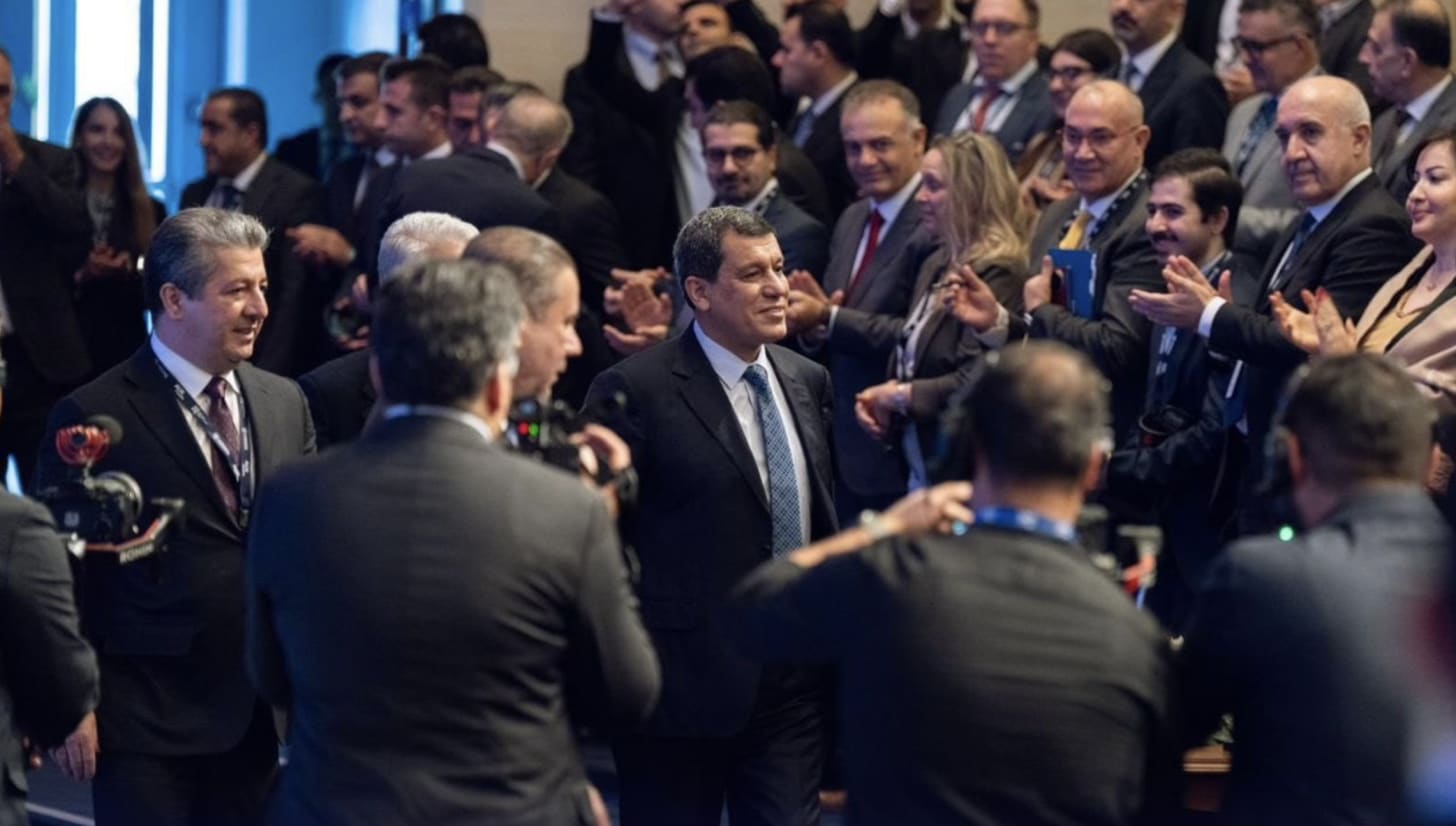
It may be a sweeping and a dubious design. Developments in Duhok showed just how far regional actors have moved in the opposite direction.
At MEPS 2025, General Mazlum Abdi gave a message that could not be clearer: Syria cannot, and should not, return to its centralized, Baath-era system. After 15 years of war, decentralization is the only realistic path, and the peoples of Syria must govern themselves within such a framework. Ilham Ahmed reinforced this, criticizing the old “one language, one party” model, which she argued oppressed all communities.
Iraqi Kurdish leaders echoed these views. President Nechirvan Barzanihighlighted that dissolving the SDG’s military forces—akin to disbanding the peshmerga of Iraqi Kurds—is not realistic. He said that Prime Minister Masrour Barzani shared the same view. The message: Syria is multiethnic and multicultural. Also from the Iraqi Kurdish perspective, only a decentralized or federal model can work.
Most strikingly, Ankara’s delegation—along with the AKP’s former Prime Minister, now a leader of a tiny conservative party, the GP, Ahmet Davutoğlu—left Duhok abruptly once they learned Abdi would attend. It became apparent that the news was a cold shower for them. The walk-out also demonstrated that Turkey’s maximalist stance has not changed. But the region has.
The conference revealed two new certainties: Iraqi and Syrian Kurds signal that from now on they will act in deeper coordination, and further developments remain aligned with U.S., French, and Israeli preferences.
This is the context in which the “İmralı Initiative,” disguised under the term “Peace Process,” now sits—and struggles.
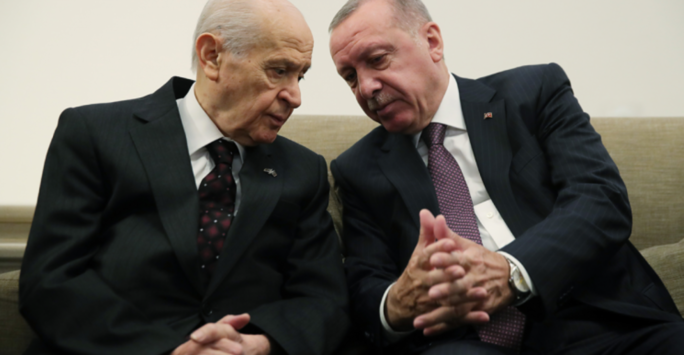
Agrandissement : Illustration 3

Bahçeli seems to feel that developments in Syria gain pace. His recent push for the ad-hoc “brotherhood and peace commission”—as it is called—to accelerate to a new phase in the process after months of stalling in endless internal talks explains his sense of urgency more than anything else. Time is seen as ripe—if not too late—for “reactivating” Öcalan as a counter-force to pull the brakes on Syria’s Kurds, as the argument seems to be.
Bahçeli’s dramatic remark—“If the commission won’t go to İmralı (to meet Öcalan face to face), I will go myself”—is interpreted as an element of strain within the governing alliance. But it is only an emotional reflection of certain pundits who, full of wishful thinking, want to see the ruling bloc collapse. The opposite is true.
The MHP-AKP partnership remains rooted in a shared strategic outlook. The goal is not necessarily a peace process per se, but the consolidation of an “internal front” by instrumentalizing it, which includes pressuring the CHP to join the initiative of a “domestic front” against a foreign threat, or punishing the CHP judicially if it resists.
The AKP hesitates to deepen the İmralı Initiative because polls tell a cautionary story: roughly two-thirds of voters across the board oppose visits to Öcalan or any form of PKK amnesty, according to the October survey by Metropoll.
Among AKP voters, opposition runs at 55–62 percent. Erdoğan, seeing himself as having been burnt politically during the 2013–15 peace process (he had been delivered a serious blow in June 2015 elections), now positions himself at arm’s length, letting the “commission” take decisions—and reserving the right to pull the plug if needed. He did so in the summer of 2015 and also terminated the work of the parliamentary commission tasked with investigating the attempted coup in 2016. Taking different risks, he could do it all over again.
The main opposition, CHP, also faces a dilemma. It joined the ad-hoc “brotherhood commission” tactically, hoping not to alienate Kurdish voters. But this has not moved their voter support one way or another; instead, İYİP and the Victory Party (ZP) on the ultra-nationalist flank have benefited from staying out—their votes keep rising. Now, the CHP faces a difficult choice: participate actively in a process it does not control or risk judicial retaliation.
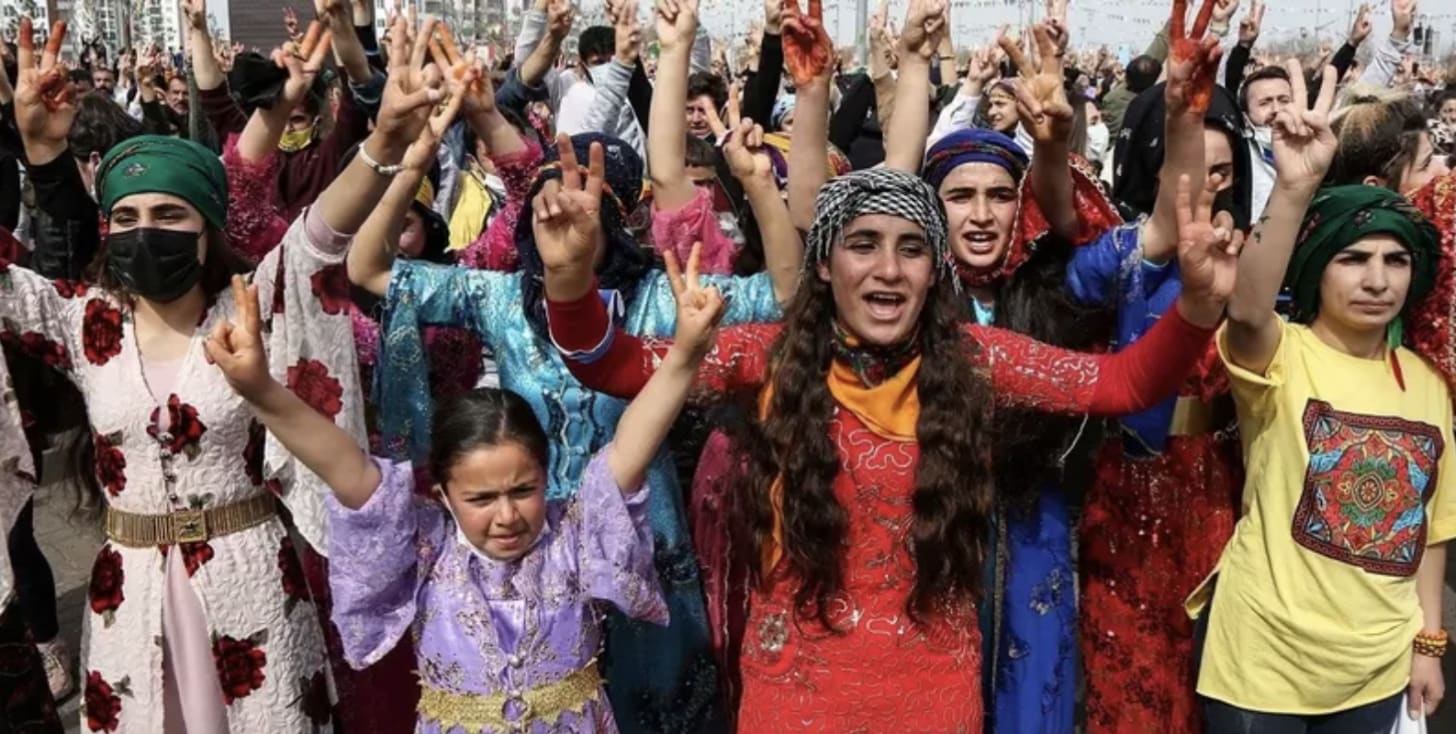
Meanwhile, the pro-Kurdish DEM Party remains curiously secondary. According to surveys and independent observers, there is little excitement about the “process” in the mainly Kurdish provinces, a fact that Öcalan reportedly views unfavorably. He has allegedly assigned individuals to form a new party he considers more competent than DEM.
The deeper problem is that Ankara’s approach seeks maximalist concessions—PKK’s total dissolution, SDG rollback by way of handing over its arms to Damascus, U.S. alignment, Syrian centralization—while offering nothing meaningful in return.
As Nechirvan Barzani said, any process here may take years. Yet Ankara seems to be negotiating from a place of legal erosion and institutional collapse. The justice system is flashing red, prisons are over capacity, political pressure is intensifying, Turkey’s Kurds raise their voices increasingly for at least confidence-building steps, and the governing alliance remains fixated on engineering domestic opposition rather than addressing regional realities in a flexible manner.



